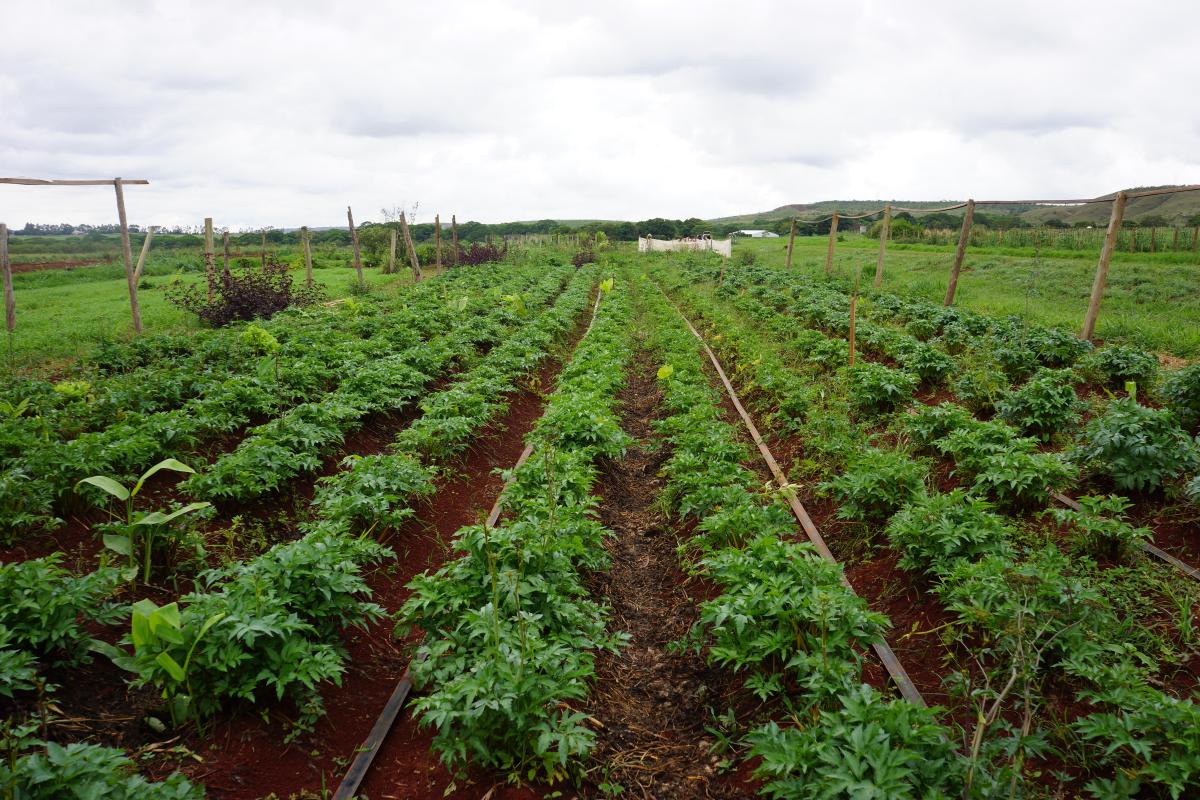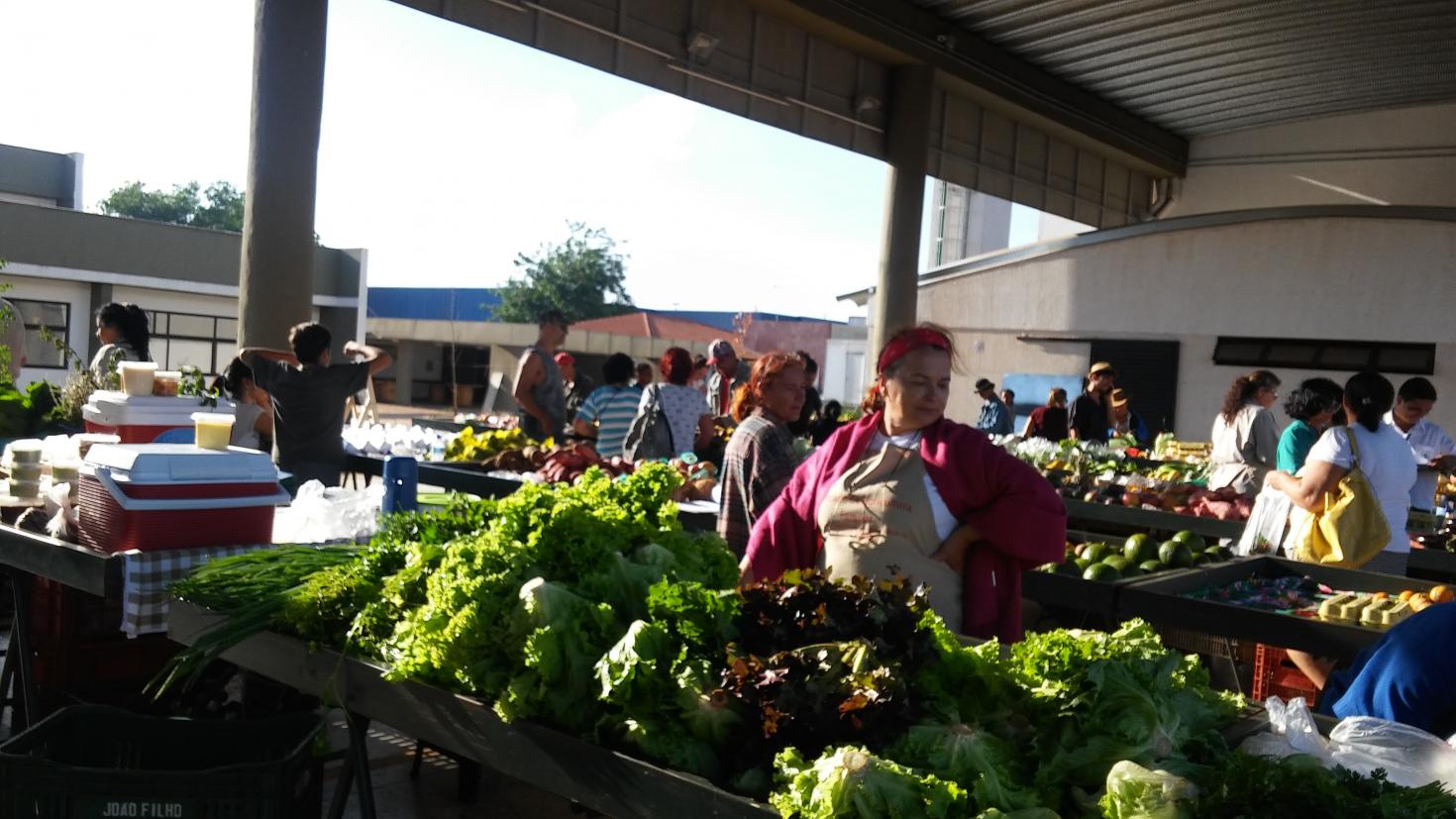IICA, through its flagship project Competitiveness and Sustainability of Agricultural Chains, has harvested valuable results for the province of Corrientes.

San José, 25 August 2017 (IICA). Efforts to reduce the level of post-harvest losses in the horticultural value chain, better marketing channels, the creation of an inter-institutional mechanism and the 337 technicians and territorial development agents who strengthened their capabilities to better support producers and producer organizations, are the results of the work been carried out by the Inter American Institute for Cooperation in Agriculture (IICA) and the Ministry of Production of Corrientes, in this value chain, in Argentina.
The “Inter-institutional board for supporting the horticultural chain in the Corrientes green belt” recently began operating and is working on generating synergies to address critical issues and ensuring the confluence of the different support instruments of the participating institutions.
This mechanism helps to develop capacity building processes in topics such as leadership and extension; associativity, business practices, commercialization, and added value; post-harvest loss management; and Good Agricultural Practices (GAP); as well as strengthening marketing channels.
The trained technicians, representing 7 institutions, are now stronger on topics such as associative processes, leadership, agribusiness and commercialization.
As actors recognized the importance of reducing the level of post-harvest losses, IICA and the Ministry of Production of Corrientes trained 25 chain actors on how to identify weaknesses throughout a value chain that lead to postharvest losses and, at the same time, identify solutions and prepare proposals for improving their efficiency. Considering that chard and lettuce are among the products with highest losses, all practical activities were focused on these products.
In order to improve marketing channels and commercialization, a team of experts from the University of Santiago, Chile, carried out an assessment and provided recommendations on how to improve the functioning of those channels. In addition, a set of innovative instruments and key actions to improve commercialization was identified through a technical visit to Brasilia´s Horticultural Belt in Brazil. Based on the results of these activities, IICA and its stakeholders are currently working on the definition and implementation of proposals to solve specific challenges.
In addition, IICA teamed up with the Ministry of Production and the Ministry of Education of Corrientes province, to develop and implement a training program for educators from 10 agricultural-technical schools on GAP in five localities.
These concrete results began as efforts in 2015, when IICA responded to a request from the Ministry of Production of Corrientes to develop a partnership to improve the competitiveness of the horticultural value chain of the Corrientes Green Belt.
The first step of this long process was to identify the main challenges facing the chain, along with potential solutions.
According to the Representative of the IICA Delegation in Argentina, Federico Ganduglia, “the stakeholders identified the need to promote articulation mechanisms within the chain, develop and strengthen producer organizations, expand extension services beyond technological and production aspects to include topics such as agribusiness and commercialization capabilities, and improve phytosanitary management”.
IICA will continue working with the Ministry of Production of Corrientes on promoting the competiveness and sustainability of the horticultural value chain to contribute to food security, as well as on generating sustainable commercial opportunities in the Province.

About Corrientes, Argentina
The province of Corrientes in Argentina occupies an area of 88,886 km2 (3.2% of the Argentine continental surface area) and a population of 992,595 inhabitants. Corrientes horticultural activity represents 6% of the national horticultural cultivated area and 30% of the value of the national horticultural production.
The Green Belt is the territory located within a radius of 50 kilometers from the capital of Corrientes. In this area, small and medium sized farmers produce tomato, pepper, watermelon, sweet potato, corn, melon, cucumber and basil, among other products to be sold at the local market.
More information:
Representative of the IICA Delegation in Argentina, Federico Ganduglia











